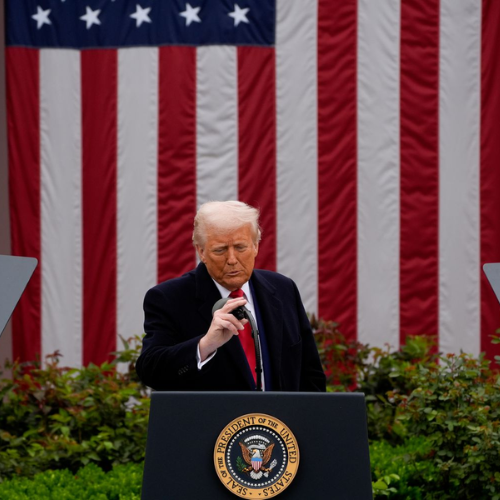The United States announced that it will now place a 17 percent tariff on goods imported from Israel. This decision, made by US President Donald Trump, is part of a broader plan to add tariffs on products coming into the country from around the world. The purpose, according to the White House, is to fix trade imbalances and make sure other countries are treating the US fairly.
The decision caused an uproar in Israel. Officials there were not only shocked but also deeply disappointed. Just a day before the announcement, Israel had removed all tariffs on American products, hoping this would strengthen trade ties and help prevent any penalties from the US side.
Instead, the opposite happened. The 17 percent tariff is higher than the 10 percent standard being placed on most countries. According to the US government, the number is based on Israel’s earlier 33 percent tariffs on certain American goods. They say this is their way of making things even.
Now, every time a product from Israel enters the US, an extra 17 percent fee will be added. That’s a big deal, especially since Israel sends over $22 billion worth of goods to the US every year. These include valuable items like diamonds, medications, and electronic devices.
China’s 54% Tariff EU’s 20%: Trump’s Reciprocal Tariffs Hit Hard
Israeli leaders described the move as a betrayal, saying they felt abandoned by a close friend.
High-Tech Sector Hopes to Avoid the Hit
One area that many in Israel are closely watching is the high-tech sector. Israel is known around the world for its strong technology industry. In fact, a large portion of its exports involve software and services, including something called “Software as a Service” or SaaS. These are products that don’t get shipped in boxes but are used online—like apps, cloud platforms, or security tools.
Some believe these types of services might not be affected by the new tariffs, since they don’t count as physical goods. But nothing has been confirmed. If these high-tech exports do get included in the tariffs, it could cause serious problems for Israeli businesses. Many startups and big tech companies in Israel rely heavily on customers and investors in the US.
If selling to the US becomes more expensive or complicated, these companies might have to rethink how they do business. There are worries that it could even scare off investors or make American customers look elsewhere for similar products.
Industry leaders in Israel are urging the government to find out more about which products will be affected. They are also preparing for the possibility that their most important sector might be caught in the middle of this trade fight.
Trade Ties Under Pressure
The United States is Israel’s biggest trading partner. In 2024, the two countries traded about $34 billion worth of goods, with $22 billion of that coming from Israeli exports to the US. These numbers show just how important the relationship is to both sides.
3 Asian Giants Japan, China and South Korea Unite Against US Tariffs, Pursue Bold Free Trade Pact
Now, that relationship is facing serious stress. While Israel took steps to welcome American products by removing all its tariffs, the US still moved ahead with the 17 percent fee. This created confusion and frustration among Israeli leaders, who thought they were making the right decision to prevent such actions.
The news has led to talks of emergency meetings within the Israeli government. Different ministries are now working to understand what this change could mean for the economy. They are looking at how prices might go up, how businesses might lose customers, and what steps they can take to respond.
Across Israel, business groups and trade experts are raising concerns. Many are asking why Israel received a higher tariff than countries like Turkey and Iran, who also have trade issues with the US.
Some groups in the US that usually support strong ties with Israel have also spoken out, saying that this move weakens the long-standing friendship between the two countries. They fear it might even help campaigns that want to hurt Israel’s economy.
As of now, the tariffs are set to take effect under President Trump’s newly declared “Liberation Day” trade policy. It includes a wide range of fees on imports from many countries, all aimed at fixing what the White House says are unfair trade practices.
For Israel, this sudden change in policy marks a dramatic and unwanted twist in its relationship with its closest ally.


